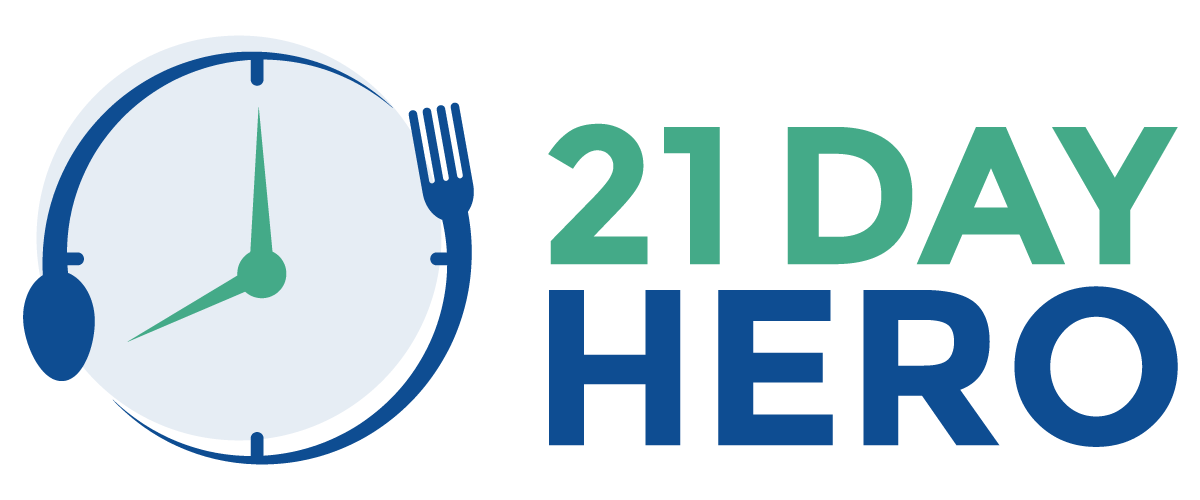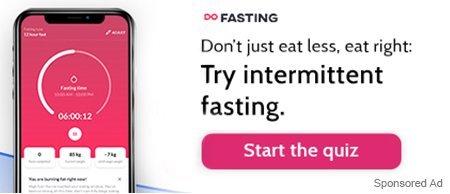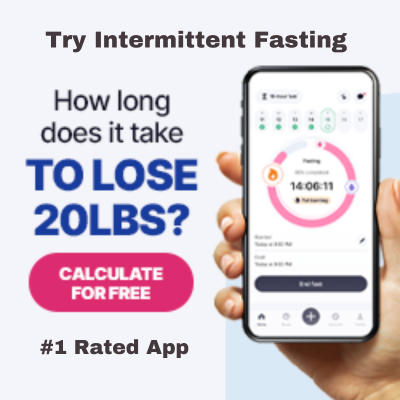What is Intermittent Fasting & water fasting | Hunger & Fasting | How to deal with hunger while fasting
Have you ever considered trying intermittent fasting or water fasting for weight loss, but felt discouraged by the thought of dealing with those pesky hunger pangs during your fasting window? So many people are asking…How to Deal with Hunger While Intermittent or Water Fasting?
One of the biggest challenges many face with these fasting methods is dealing with hunger during the fasting window. Many people give up on fasting because they feel too hungry and struggle to maintain their fast.
But don’t worry, you don’t have to give up your fasting goals! In this article, we will share the best way to help you deal with hunger while fasting. With a little planning and preparation, you can successfully complete your fasting window and reap the benefits of fasting.
What is Intermittent Fasting and Water Fasting?
While both Intermittent Fasting and water fasting are forms of fasting, they are two very different approaches to fasting. Intermittent Fasting is just what its name implies- the fasting period is intermittent or only for a certain amount of time. Intermittent Fasting is a schedule between an eating window and a fasting window.
There are different types of Intermittent Fasting (like 16/8 and alternate day fasting) and many people find that choosing the right fasting schedule for their lifestyle contributes to their success.
So, why would someone try Intermittent Fasting? Intermittent Fasting has become an increasingly popular method for weight loss and for health benefits. It has been studied and shown to be a great way for some to lose weight. The basic idea behind the weight loss benefits of Intermittent Fasting are a form of calorie restriction.
When you limit the amount of hours in the day that you are eating, oftentimes this leads to an overall reduction in calorie consumption. By eliminating food intake during an extended period of time, it gives your body a chance to use more stored fat for energy leading to fat loss. It also provides a break for your digestive system and allows the body to use energy for other things such as autophagy (the body’s way to get rid of damaged cells).
For more on ways to use Intermittent Fasting for weight loss, check out this Intermittent Fasting for Weight Loss Tips.
Water fasting has recently become on-trend as a weight loss strategy. Water fasting is the practice of severely restricting food intake and only consuming water for a limited period of time. Some also include beverages such as black coffee, black tea, green tea, or even bone broth while on a water fast.
While the safest way to practice a water fast is for 72 hours or less, there are some who have practiced a water fast for 10, 14, and even 30 days. It is always a good idea to consult a medical professional, especially if you have certain health conditions, before starting a water fast. And, if you experience any of the 10 Signs to Stop Water Fasting, you should discontinue the fast.

Understanding Hunger and Fasting
Hunger is the body’s natural signal that we need food. You can think of those hunger pangs as an alarm system where our bodies detect that energy (glucose) is low and we need to eat on the fast days.
Ghrelin is a hormone your stomach produces and releases. It signals your brain when your stomach is empty and it’s time to eat.
During a fasted state, the body detects lower than normal blood sugar levels or glucose levels. Research shows that these fluctuations in blood sugar levels are closely tied to our feelings of hunger. Our energy levels are similarly related to blood sugar levels and hunger. Oftentimes, we feel low energy when we first start to notice that we are hungry.
In a typical Western diet, someone would very rarely experience a fasted state. If we are eating every few hours and late night snacking, we don’t give our bodies a chance to enter a fasting period. If we don’t have specific fasting hours, then we can easily fall into an overfed state which can lead to weight gain. When our digestive system doesn’t get a break, our hunger cues can kick into overdrive causing us to “feel” hungry even though we may not be.
A fed state and fasted state signal our body to release higher or lower amounts of insulin. In a fed state, blood sugar levels raise from the food we eat, which in turn causes insulin levels to rise. Once our energy needs are met, the extra glucose is stored by the liver in the form of fat cells. While in a fasted state, the opposite happens. When we aren’t eating, blood sugar levels won’t rise and insulin levels will remain low. The body will then turn to stored fat for energy.
While hunger plays an important role in our survival, there are ways to improve hunger cues so you aren’t constantly dealing with uncomfortable hunger pangs. Oftentimes, our bodies will need some time to adjust to being in a fasted state if it is something we aren’t used to.
At first, the hunger will feel more extreme while fasting, but it will eventually become more manageable with time. While our bodies are adjusting to this new level of hunger, it can be very difficult to stick with a fast. It’s often one of the main reasons that people don’t stick with fasting. Let’s discuss some tips to help us deal with the hunger pangs and understand when it may be time to stop a fast.
Tips on how to deal with hunger intermittent or water fasting
Now that we know the benefits of fasting and how hunger plays a role in fasting, let’s go over some tips on how to deal with hunger while fasting.

For Intermittent Fasting – How to stop feeling hungry when fasting:
Choose the right eating window
Choosing the right intermittent fasting plan is key to successfully managing hunger and keeping food cravings at bay during your fasting window. Think about what your day looks like? What hours are you free to eat? Do you work nights? What time do you normally wake up? Do you get more hungry in the morning or lunch time?
Good news!!! There are lots of different types of intermittent fasting plans we can all choose from, including the 16/8 method, the 5:2 method, and the alternate-day fasting method. Each plan varies in the length of the fasting period and the eating window. It’s important to choose a plan that fits your lifestyle and schedule, as well as your personal hunger tolerance. But do what fits you! You don’t need to follow anything you don’t want to.
If you’re new to fasting, you might want to start with a shorter fasting window and gradually increase it over time as you please, again do what fits you!!! Remember, there is no one-size-fits-all approach to intermittent fasting, so take some time to experiment and find the plan that works best for you.
Try natural appetite suppressants
You have probably seen appetite suppressants advertised in supplement form, but did you know that certain foods and drinks can act as a form of appetite suppressants?
Caffeine-containing drinks such as black coffee, black tea, or green tea can temporarily suppress your appetite without containing any calories. There are also certain foods that naturally cause us to feel fuller (when consumed during your eating window).
These foods include those with healthy fats such as avocado or nuts as well as high fiber containing foods such as raw fruits and vegetables, oats, and whole grains. There is also some evidence to suggest that apple cider vinegar can help to suppress your appetite and keep hunger under control.
Drink plenty of water
Staying hydrated is crucial during a fast, as it helps to reduce hunger pangs and keep your energy levels up. When you’re not eating, your body will start to break down fat for energy, which produces waste products that need to be eliminated through urine and sweat. This means that you’ll need to consistently drink water throughout the fast to support your body’s natural detoxification process. Reach for that glass of water whenever you can!
Additionally, staying hydrated can help to prevent headaches, dizziness, and other side effects of fasting. Aim to drink at least eight glasses of water per day during your fasting period, and consider adding some electrolytes to your water to help replenish the minerals lost through sweating.

For Water Fasting
Prepare for Your Fast
Preparing your mind and body for a water fast is important to ensure a successful and safe experience. One key aspect of preparation is reducing your food intake in the days leading up to the fast.
This can help your body adjust to the idea of not eating, and may also help reduce hunger pangs during the fast. For your last meal before your water fast, the best option is to eat a light, easily digestible meal such as steamed vegetables, lean protein, make sure you have ENOUGH protein, and healthy fats like avocado.
In addition to dietary changes, it’s important to mentally prepare for the fast by setting intentions and finding ways to manage stress.
Listen to your body
Listening to your body is crucial during a fast, as it can help you avoid potential health risks and negative side effects. One way to support your body during a fast is to get enough sleep.
Aim for seven to nine hours of sleep per night, as this can help regulate your hunger hormone function and reduce stress levels, both of which can impact your hunger and energy levels during a fast. It’s also important to pay attention to how you’re feeling throughout the fast.
If you feel unwell or experience severe hunger pangs, it may be a sign that the fast is not right for you at this time. Don’t hesitate to stop your fast if you feel uncomfortable or experience any negative symptoms.
Signs to watch out for during a fast include dizziness, fatigue, headache, nausea, and irregular heartbeats. If you experience any of these symptoms, it’s important to break your fast and seek medical attention if necessary.
In Conclusion
Yes, you will feel hungry sometimes, but I use ways to help, and yes, you will get over it with time! Let your body adjust.
Geez, I just want to stop feeling hungry when fasting! Even though hunger is a natural part of the fasting process, there are many strategies you can use to manage it effectively. The best thing to do is choose the right intermittent fasting plan, staying hydrated, and preparing your mind and body for a fast, you can minimize hunger pangs and optimize fat loss.
It’s also important to listen to your body throughout the fast, and to be aware of potential health risks and warning signs. With these tips and tricks in mind, you can enjoy the benefits of fasting while supporting your overall health and wellbeing. When you are ready to eat your next healthy meal, be sure to break your fast with delicious, nutrient-dense foods, healthy fats, and stay away from processed foods!












